Dalam dunia digital marketing, SEO (Search Engine Optimization) memainkan peran krusial dalam meningkatkan visibilitas situs web di mesin pencari. Namun, SEO bukanlah satu entitas tunggal, ia terbagi menjadi dua komponen utama: SEO On-Page dan SEO Off-Page. Memahami perbedaan antara keduanya dan cara menggunakannya dengan benar adalah kunci untuk meningkatkan peringkat situs web Anda.
SEO On-Page adalah tentang segala sesuatu yang dapat Anda optimalkan di dalam situs web Anda sendiri. Ini mencakup aspek-aspek seperti pemilihan dan penempatan kata kunci, pembuatan konten berkualitas, pengaturan meta tag, judul halaman, penggunaan heading yang tepat, struktur URL, kecepatan halaman, dan optimasi gambar. Intinya, SEO On-Page berfokus pada elemen-elemen yang dapat Anda kontrol langsung di situs Anda, yang tujuannya adalah untuk membuat halaman web lebih mudah diakses dan dipahami oleh mesin pencari dan memberikan pengalaman pengguna yang optimal.
SEO Off-Page, di sisi lain, mencakup semua tindakan yang dilakukan di luar situs web Anda untuk meningkatkan peringkat situs Anda di hasil pencarian. Ini terutama berfokus pada upaya membangun backlink—tautan dari situs web lain yang mengarah ke situs Anda. Backlink dianggap sebagai “suara” yang menunjukkan kredibilitas dan otoritas situs web Anda di mata mesin pencari. Selain backlink, SEO Off-Page juga melibatkan strategi seperti pemasaran media sosial, promosi konten, dan manajemen reputasi online.
Dalam artikel ini, Anda akan mendapatkan pemahaman yang jelas tentang bagaimana kedua jenis SEO ini bekerja dan mengapa keduanya penting. Kami akan menjelaskan langkah-langkah praktis untuk mengoptimalkan situs Anda secara On-Page dan Off-Page, serta bagaimana menggabungkan kedua pendekatan ini untuk mencapai hasil SEO yang lebih baik. Dengan strategi yang tepat, Anda dapat meningkatkan visibilitas situs web Anda, menarik lebih banyak pengunjung, dan meningkatkan konversi.
Penggunaan SEO On-Page:
SEO On-Page melibatkan optimasi elemen-elemen yang ada di dalam situs web Anda untuk meningkatkan peringkat di mesin pencari dan memberikan pengalaman terbaik bagi pengguna. Berikut adalah langkah-langkah utama:
1. Lakukan riset kata kunci untuk menemukan kata kunci yang relevan dan memiliki volume pencarian tinggi. Gunakan kata kunci ini di seluruh konten, judul halaman, meta deskripsi, heading, dan URL.
2. Buat konten yang informatif, relevan, dan bermanfaat bagi pengguna. Konten harus menjawab pertanyaan atau kebutuhan pengguna, dan mengandung kata kunci yang terintegrasi secara alami.
3. Gunakan meta title dan deskripsi yang menarik dan relevan, serta optimasi tag alt pada gambar untuk meningkatkan SEO dan keterlibatan pengguna.
4. Buat URL yang pendek, deskriptif, dan mengandung kata kunci, sehingga mudah dibaca oleh mesin pencari dan pengguna.
5. Gunakan heading (H1, H2, H3, dll.) untuk mengorganisasi konten dan membuatnya lebih mudah dipahami oleh pengguna dan mesin pencari.
6. Pastikan halaman Anda memuat dengan cepat dengan mengoptimalkan gambar, menggunakan caching, dan meminimalkan skrip yang tidak diperlukan.
7. Pastikan situs web Anda dioptimalkan untuk perangkat mobile dengan desain responsif yang baik.
8. Gunakan tautan internal untuk menghubungkan halaman-halaman terkait di situs Anda, membantu mesin pencari dan pengguna menavigasi situs Anda dengan lebih baik.
9. Tambahkan schema markup untuk memberikan konteks tambahan pada konten Anda, yang dapat meningkatkan penampilan di hasil pencarian.
Penggunaan SEO Off-Page:
SEO Off-Page fokus pada tindakan yang dilakukan di luar situs web Anda untuk meningkatkan peringkatnya di mesin pencari. Ini terutama melibatkan upaya untuk membangun otoritas dan kredibilitas situs web Anda. Berikut adalah langkah-langkah utama:
1. Dapatkan tautan dari situs web lain yang memiliki reputasi baik dan relevan dengan niche Anda. Backlink dari situs otoritatif dapat meningkatkan kredibilitas situs Anda di mata mesin pencari.
2. Distribusikan konten berkualitas tinggi melalui berbagai saluran, seperti blog tamu (guest posting), artikel, infografis, atau video, untuk menarik perhatian dan mendapatkan tautan balik.
3. Promosikan konten Anda di platform media sosial untuk meningkatkan visibilitas dan menarik pengunjung ke situs web Anda. Meskipun tautan media sosial biasanya no-follow, mereka tetap dapat meningkatkan lalu lintas dan eksposur.
4. Aktif mengelola ulasan online dan testimoni pelanggan. Ulasan positif dari situs ulasan terpercaya dapat meningkatkan citra merek Anda dan menarik lebih banyak pengunjung.
5. Bangun hubungan dengan influencer, blogger, dan pemilik situs lain di industri Anda untuk menciptakan peluang kolaborasi dan memperoleh backlink berkualitas.
6. Berpartisipasi dalam diskusi di forum industri atau komunitas online dengan memberikan jawaban atau saran yang bermanfaat, sambil menyertakan tautan ke situs Anda jika relevan.
Dengan menggabungkan strategi SEO On-Page dan Off-Page, Anda dapat meningkatkan visibilitas situs web Anda di mesin pencari, menarik lebih banyak pengunjung, dan membangun otoritas situs Anda secara keseluruhan.
Karena itu, Thrive merancang BIZGO, sebuah platform inovatif yang dirancang untuk membantu bisnis dalam mengoptimalkan strategi pemasaran digital mereka. BIZGO menawarkan berbagai fitur canggih yang memungkinkan perusahaan untuk meningkatkan visibilitas online, mengelola kampanye pemasaran dengan lebih efisien, dan mendapatkan wawasan yang lebih dalam melalui analitik yang komprehensif. Dengan BIZGO, Thrive memberikan solusi yang tepat untuk membantu bisnis tumbuh dan bersaing di era digital yang semakin kompetitif.



















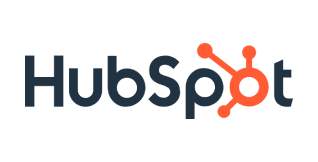

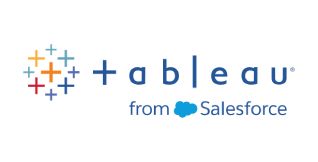
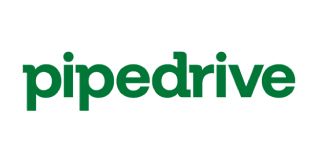
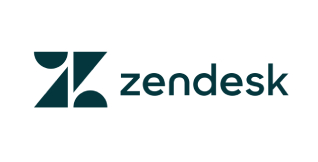
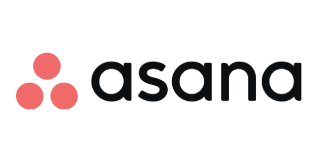



 Industrial Robotics Integration
Industrial Robotics Integration
 IT Outsourcing Service
IT Outsourcing Service
 Secure Internet SD-WAN Connection
Secure Internet SD-WAN Connection
 Digital Marketing Service
Digital Marketing Service









